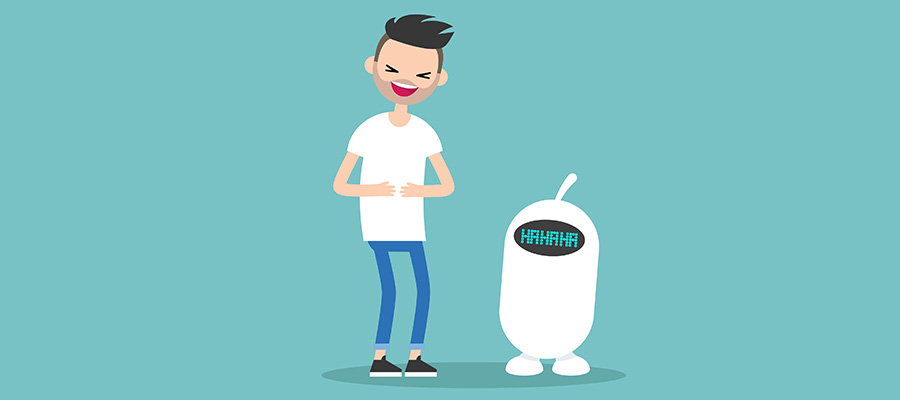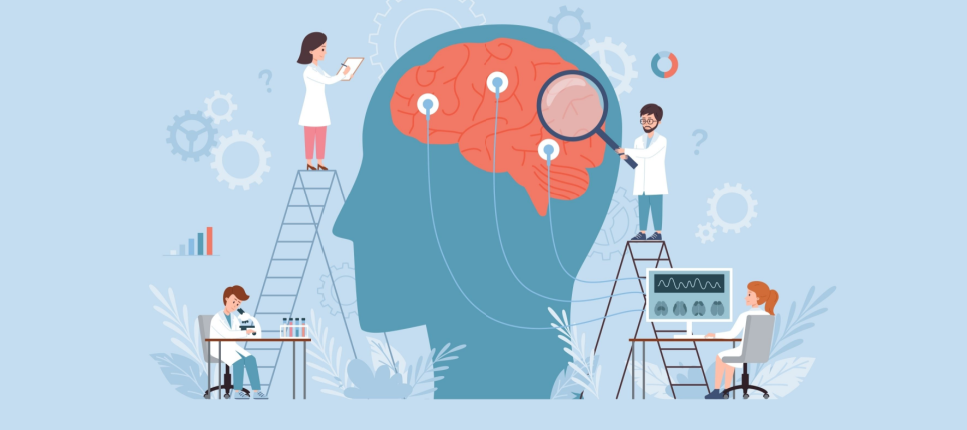While the most advanced AI programs can successfully mimic the cognitive functions associated with human intelligence, decoding humor and making people laugh gets a bit more complicated.
The first artificial intelligence (AI) humorist appeared last year at the Melbourne International Humor Festival. LOL-BOT, its little name, tales jokes by reassembling text and image data from the thousands of servers it’s plugged into. However, let’s face it, if its audience was in a happy mood, it’s most likely because of the element of surprise it created and not for its stand-up performance. But hey, it’s a beginning, and the machine gains spontaneity over our intelligent personal assistants (Siri, Alexa,…) whose lines – which can give us some little treasures * – remain preprogrammed.
As natural as it appears to humankind, humor is a challenge for AI, the biggest, according to many.
A process difficult to decode
If the codes of humor seem so difficult to decipher, it is because it all relies on culture, context, innuendoes, and interactions, and it mobilizes innate cognitive faculties that count among the most sophisticated ones: self-awareness, mastery of the language nuances, understanding emotions and nonverbal cues, spontaneity, empathy, etc. Let us add to this cocktail the marks of wit which are attached to – the element of surprise, the retort, the self-deprecation, the sarcasm, the second degree, the absurd or the transgression.
Art, or even science according to some, specialists of various fields who try to break through its secrets, each with their jargon and their approach, have not reached a consensus. Two Americans, journalist Joel Warner and the director of the Colorado Humor Research Lab, Peter McGraw, traveled the world trying to understand it and published their observations in a book called The Humor Code. According to them, the most convincing theory of laughter is that of “benign violation.” Advanced by the linguist Thomas Veatch in the late 1980s, this theory states that one laughs at what seems out of place or shocking, but not too much.
The recipe for laughter would therefore perhaps be in the control of this delicate balance that must take into account that the limit “benign” differs not only from one culture to another but also from one person to another. In short, it’s a safe bet to assume that humor will be one of the last battlefields on which the AI can plant its flag … if it succeeds! 😉
AI makes the real world dance
Until we really get to laugh, the AI makes us dance. Hello World, released at the beginning of this year, is the first album designed in part by the AI. Several artists, including Stromae, collaborated on writing songs with an algorithm that suggested different ideas.
*Siri & co., make me laugh!
We find on the web different lists of best lines from intelligent personal assistants or records of questions to ask them to discover their funny side. Some netizens also enjoy comparing the humor of Alexa, Siri or Cortana to determine which is the most comical.
Here is a sample of some of their comic repertoire:
“Siri, tell me a joke.”
The past, present, and future walk into a bar. It was tense.
“Alexa, tell me a joke.”
What did the dog say after a long day at work?
Today was ruff.
“OK, Google, tell me a joke.”
What do you call a can opener that doesn’t work?
A can’t opener.






